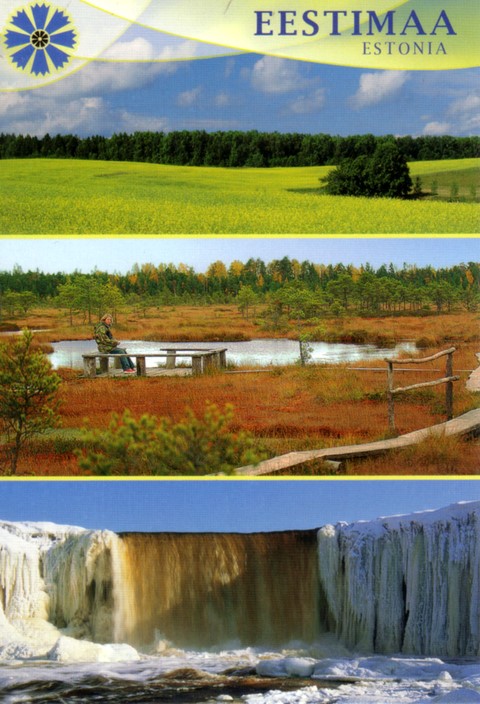Once upon a time, in a small corner of the world, a nation found its voice. A voice so powerful, so melodic, that it echoed through history and etched its place in the hearts of millions. This is the captivating tale of Estonia’s extraordinary journey towards independence, woven with the threads of music, resilience, and unwavering determination. In a land where ancient traditions and rich folklore merged with the hopes and dreams of its people, a revolution unfolded – not with guns or weapons, but with harmonies and unity. Join me as we embark on a captivating exploration of “The Singing Revolution,” where a nation sang its way towards freedom and proved, with every note, that the power of music can shape the destiny of a nation.
The Singing Revolution: Estonia’s Remarkable Musical Movement
Estonia, a small Baltic nation, boasts a truly remarkable musical movement known as “The Singing Revolution.” This awe-inspiring phenomenon not only showcases the power of music but also its ability to unite and inspire an entire nation. Throughout history, Estonia has endured various occupations and oppressions, but it was the force of music that truly propelled the country towards liberation and independence.
With an unwavering determination, the people of Estonia utilized music as a tool for change, igniting a sense of national pride and fostering unity among its citizens. From harmonious folk songs to rousing choral compositions, the melodies echoed across the country, resonating with the deep-rooted emotions of the Estonian people. These vibrant tunes became the stirring anthems of resistance, providing solace and strength during the difficult times of national turmoil.
- Inspiring choral festivals attracted thousands of participants
- Songs were used to express shared historical experiences
- Musical performances became peaceful acts of defiance
Through this extraordinary musical movement, Estonia gradually paved the way towards its long-desired independence. The act of singing, with its inexplicable power to transcend cultural barriers and language differences, laid the foundation for a united Estonia. It became a testament to the resilience and pride of a nation, illustrating that music, more than any other medium, has the ability to forge an indomitable spirit and propel a nation towards its aspirations.
Today, as Estonia celebrates its independence, their singing tradition continues to thrive, representing a profound musical legacy that forever etched its place in history. The world stands in awe of the remarkable “Singing Revolution,” a testament to the unwavering human spirit and the transformative power of music.

Preserving Estonian Identity through Harmonious Protests
Protests have emerged as a powerful tool for Estonians to safeguard their national identity, rooted in centuries of cultural heritage and resilience. The harmonious nature of these demonstrations reflects the Estonian spirit and exemplifies the nation’s commitment to preserving its unique identity.
With a rich history of songs, dances, and folk traditions, Estonia’s identity is indelibly tied to its culture. Through peaceful protests, Estonians have sought to protect their native language, traditions, and values from external influences that could erode their distinct way of life. These gatherings, often accompanied by traditional songs sung in unison, serve as a reminder of the strength that lies in unity and the determination to remain true to one’s roots.

Unleashing the Power of Song: Strategies for Catalyzing Social Change
In a world filled with diverse cultures and voices, music has emerged as a powerful force capable of transcending barriers and igniting social change. Harnessing the potential of this art form to create positive impact requires strategic and innovative approaches. Here, we explore some effective strategies that have proved instrumental in catalyzing social change through the power of song.
1. Amplify marginalized voices: Music has the ability to amplify voices that are often suppressed or ignored. By ensuring that the music industry and platforms prioritize underrepresented artists and their stories, we can foster a more inclusive and equitable society. Promoting diversity in music not only amplifies marginalized voices but also challenges stereotypes and promotes social harmony.
2. Collaborate for collective impact: Music has the power to create unity and build bridges across communities. Encouraging collaboration between artists from different backgrounds can foster a sense of shared purpose, breaking down societal barriers and promoting understanding. By joining forces and leveraging their collective talents, musicians can create transformative songs that inspire change, encourage dialogue, and promote empathy.

Inspiring the World: The Lessons of Estonia’s Singing Revolution
When examining the remarkable historical event known as Estonia’s Singing Revolution, a profound sense of inspiration emerges. It serves as a testament to the power of unity, resilience, and the unwavering human spirit. Estonia, a small Baltic nation, rose up against Soviet occupation in the late 1980s, not with guns or weapons, but with a resounding chorus of voices. Through their shared love for music and their determination to reclaim their national identity, the Estonian people stood in unison, singing their way towards freedom.
The lessons learned from Estonia’s Singing Revolution resonate deeply and offer a blueprint for peaceful resistance, cultural preservation, and the triumph of peaceful cooperation over aggression. Here are some key takeaways:
- The transformative power of music: Music has the rare ability to unite people like no other art form. The Estonians harnessed this power, organizing massive singing festivals that attracted tens of thousands. These gatherings became a symbol of resistance and a peaceful platform for expressing national unity and aspirations for independence.
- The strength of cultural identity: Estonia’s struggle was not just a battle for political autonomy; it was also a fight to safeguard their rich cultural heritage. By preserving and celebrating their unique traditions, language, and songs, the Estonian people held a mirror to their oppressors, displaying an unbreakable spirit that no occupation could extinguish.
- Persistence against adversity: The Singing Revolution spanned years, requiring both patience and perseverance. Despite facing intimidation, surveillance, and even violence from Soviet forces, the Estonian people never wavered in their peaceful resistance. They knew that the enduring power of their song would eventually overcome the might of oppression, and their conviction proved triumphant.
Insights and Conclusions
As we close the doors on Estonia’s remarkable journey towards independence, the echoes of the Singing Revolution continue to reverberate through the ages. What unfolded within the tiny Baltic nation during those tumultuous years was nothing short of a symphony of resilience, harmony, and unwavering determination.
Through the melodic power of song, Estonia’s people rose above the shackles of oppression, employing the universal language of music to awaken the dormant spirit of their nation. Emboldened by their hymns and anthems, they harnessed the transformative power of their voices, transforming their struggle into a symphony of hope that would resound across the globe.
In a land where choral singing is woven into the very fabric of its identity, the Singing Revolution became a resplendent battleground. The Estonian Song Festival, once a unifying celebration of shared tradition, became a stage upon which the suppressed voices of a nation sought liberation. Each note, each harmony breathed life into a collective consciousness that yearned for the freedom to determine its own destiny.
Yet, it was not just music that paved Estonia’s path to independence. The people, in their tireless pursuit of autonomy, embraced a kaleidoscope of peaceful actions that would eventually shatter the chains of a devastating occupation. Their cultural resilience, their unwavering belief in a brighter future, and their ardent desire for self-determination became the chorus that echoed across borders and inspired minds around the world.
In the aftermath of Estonia’s independence, its Singing Revolution stands as a testament to the extraordinary power that lies within human spirit. It is a reminder that even the most humble of voices, when raised in unison, can orchestrate the downfall of tyranny and ignite the birth of a new era.
Today, as we reflect upon Estonia’s remarkable story, we are reminded that the power of unity, wrapped in the fabric of music, transcends divisions and speaks directly to the heart of humanity. The Singing Revolution is not just a historical event confined to Estonia’s borders; it is a testament to the significance of culture, resilience, and the indomitable spirit of a people who refused to be silenced.
As the final notes of Estonia’s symphony fade into the annals of history, we bear witness to a nation that reclaimed its sovereignty through a harmony that conquered adversities. It is a legacy that will forever resound as a reminder that even the faintest voice, when imbued with the collective strength of a nation, can transform the world.

